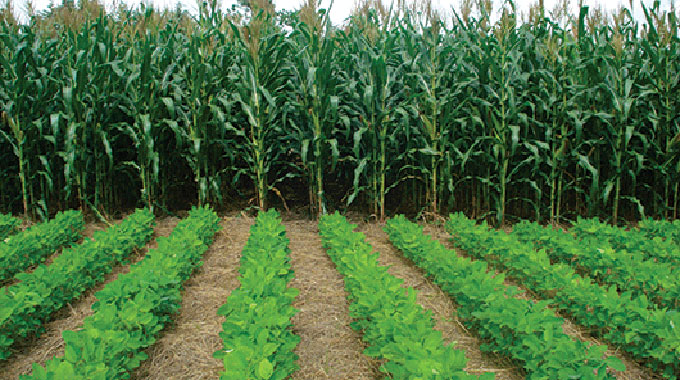No need for farmer-miner conflict, Minister declares

Patrick Chitumba, Midlands Bureau Chief
MINERS and farmers can easily co-exist to the extent of forming partnerships and sharing natural resources without engaging in conflicts and legal wrangles, Lands, Agriculture, Water, Fisheries and Rural Development Deputy Minister, Vangelis Haritatos has said.
He noted that there have been a lot of miner-farmer conflicts in most communities over control and access to the land.
Parliament has begun public hearings on the Mines and Mining Amendment Bill that seeks to harmonise perennial disputes between farmers and miners by providing for various conflict resolution mechanisms that include negotiations, referring disputes to the courts and an option allowing the farmer to sell the property to the miner among other proposed measures.
The Bill, which was gazetted early this month, will seek to reconstitute the composition of the Mining Affairs Board and clarify its functions, establish the Mining Cadastre Register and Registry, and reduce the classes of Mining Titles to three only as well as regulate the activities of prospectors.
The issue of how to resolve disputes with a farmer who in most cases is the landholder and a miner who is coming in to extract minerals has been a thorny issue that has seen the Bill taking long to be finalised.
The Bill now provides a number of resolution frameworks aimed at ending disputes.
With respect to prospecting, it proposes open negotiations between a farmer and a miner. However, in the event that they fail to find common ground, the prospector might refer the dispute to the provincial mining director who will have to make a determination after a hearing.
Officially opening the inaugural Midlands Miners, Farmers Investors Conference in Gweru on Wednesday, in a speech read on his behalf by the Midlands provincial director for Agriculture and Rural Development and Advisory Services, Mrs Madeline Magwenzi, Dep Minister Haritatos said miners and farmers should co-exist as they are both key pillars of the economy.
“Miners and farmers can easily co-exist to the extent of forming partnerships to share the natural resources without even engaging in conflicts and taking each other to court. It is prudent that miners and farmers work together as they are all important players in the development of the economy,” he said.
Dep Minister Haritatos said the two sectors need to be harmonised. He said farmers and miners should take advantage of the Mines and Mining Amendment Bill and make contributions that benefit them.
“Parliament has begun public hearings on the Mines and Mining Amendment Bill that seeks to harmonise perennial disputes between farmers and miners by providing for various conflict resolution mechanisms that include negotiations. Every one of us has to contribute so that our voice are heard,” he said.

Section 36 of the Bill provides that an aggrieved party has a right to appeal to the Permanent Secretary of Mines and Mining Development and ultimately to the Administrative Court.
The clause is the first of many adverting to the manner of resolving disputes between prospectors and miners, on the one hand, and farmers and other landholders on the other hand, and it sets the pattern for other clauses addressing farmer/miner disputes.
“The pattern is as follows: whenever a dispute arises (usually after negotiations between the disputants to resolve the dispute informally have failed), one of the disputants (usually the one asserting the mining right) approaches the provincial mining director (PMD) who thereupon establishes the issues in dispute by obtaining affidavits from the disputants,” reads the clause.
“The PMD then convenes a meeting (at his or her office or elsewhere), to which other interested parties are also invited. At the meeting, the disputed issues are canvassed in an informal yet structured way.
The PMD conducts the meeting in accordance with certain rules specified in the Second Schedule, to ensure the proper adjudication of the issues.”
Another avenue is provided in Section 242 providing for the compulsory purchase or sale of private land covered by a mining lease.

Mining Sector Development Strategy graphic illustration
“Subject to subsection (3), where a mining lease has been issued and the whole or a portion of the land covered by such mining lease is private land, the owner of such private land may apply to the Administrative Court for an order compelling the holder of such mining lease to purchase,” reads the clause.
Other objectives of the Bill include the need to ensure uniformity and simplicity of mining titles and the pegging of secondary reefs while the holding of extra-lateral rights will be abolished.
It will also regulate the activities of prospectors more closely, and to confine their activities to specific areas defined by grids, remove the distinction between precious metal and base metal claims, abolish the extra-lateral rights which holders of precious metal claims enjoy at present, provide for mining title to be granted in the form of a mining lease, where the title extends over four or more contiguous blocks and to require holders of mining rights to work their claims rather than allowing them to preserve their title by paying annual fees.









Comments